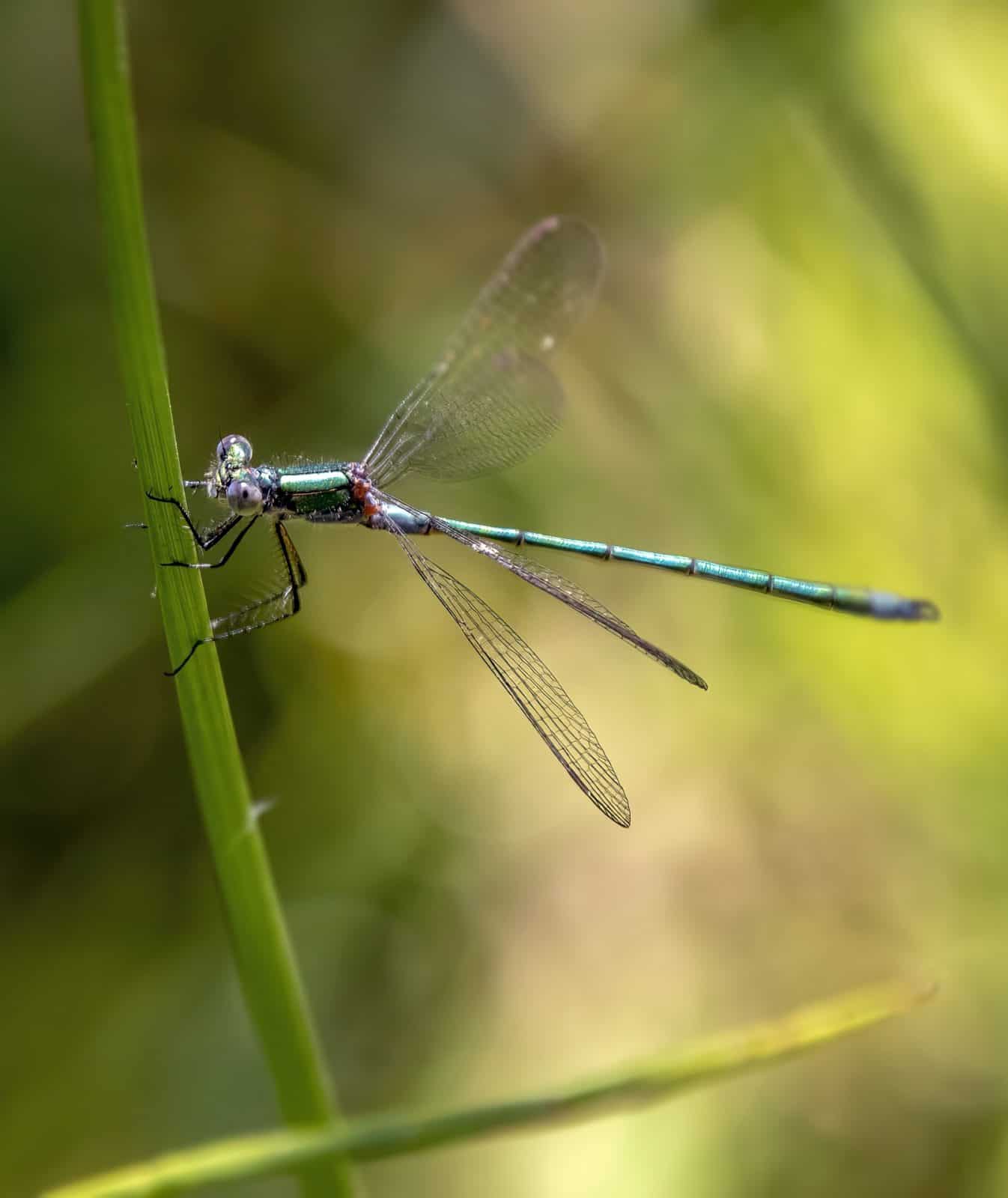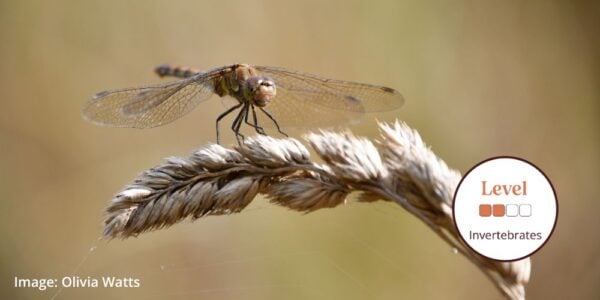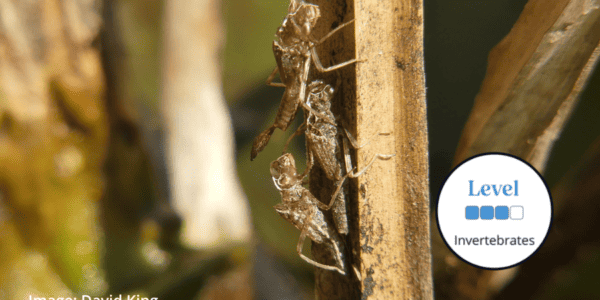This beginner course presents a great opportunity to immerse yourself in the world of dragonflies and damselflies, the Odonata! You will be introduced to their fascinating life cycles and ecology before observing the different life stages in action out in the field.
The day will be rounded off by exploring how you can take your interest further and actively contribute to the conservation of this group of insects.
This course will cover:
- Understanding where dragonflies and damselflies are placed in the animal kingdom
- Introduction to dragonflies and damselflies and understanding the differences between them
- A detailed description of the life cycle of dragon and damselflies
- How to go about finding and observing dragonflies and damselflies
- Weather permitting, close-up observation of individuals in the field
- An overview of the species diversity of dragonflies and damselflies in the UK
- An explanation of how to take your interest further and actively contribute to the conservation of dragonflies and damselflies
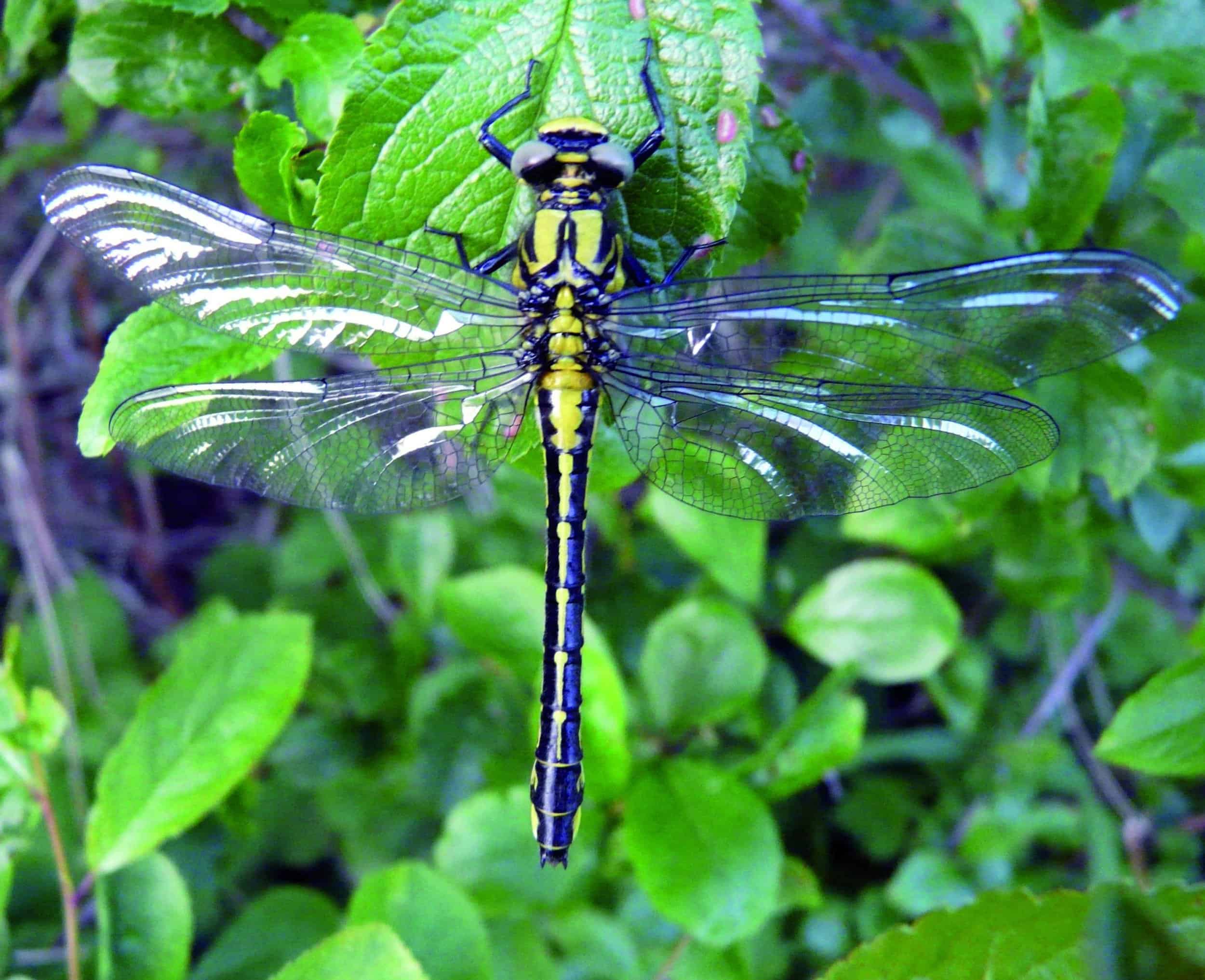
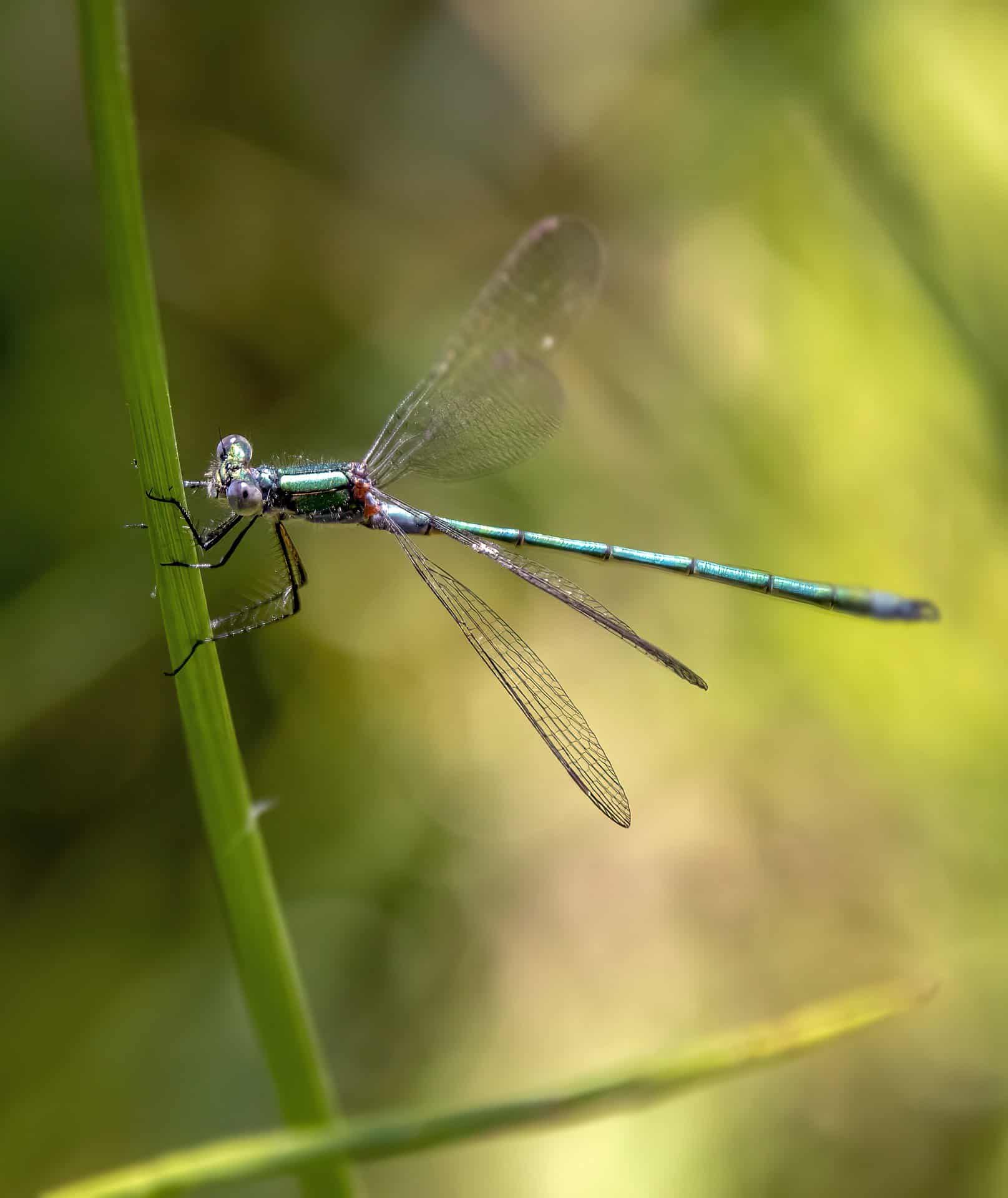
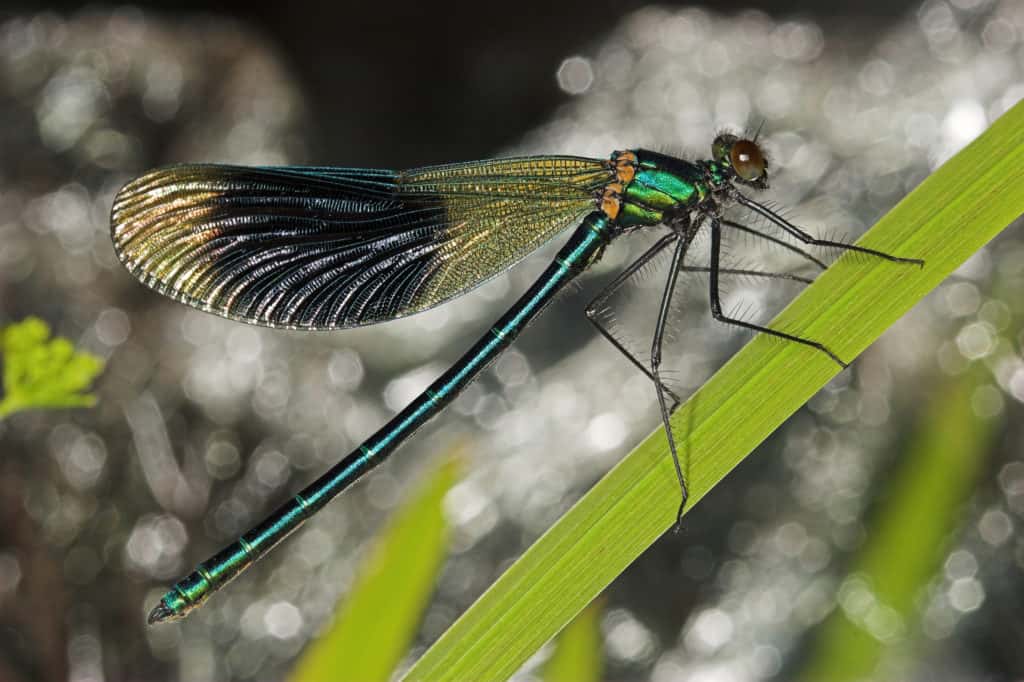
Read More
This course will deliver an introduction to the natural history of dragonflies and damselflies via classroom sessions and a walk around waterbodies at your location.
By the end of the course, you will be able to:
- Understand the differences between dragonflies and damselflies
- Understand their lifecycle and basic anatomy
- Understand how and where to observe the different life stages
- Understand how to take an interest in this group of insects further
Who should attend? – Anyone wishing to know more about the life history of these fascinating insects.
Knowledge level – Beginner. Level descriptors can be found on the following web-page: Framework and Course Level Descriptors
Prior knowledge – No existing knowledge or experience is needed for this course, just a willingness to explore and learn.
PLEASE NOTE: There is no accommodation, refreshments, or meal facilities provided with this course. Refreshments (tea and coffee) will be available. If we are unable to reach viable numbers for this course, we will inform you of the course cancellation 4-5 weeks prior to the course run. We would recommend when purchasing accommodation and/or travel you should take out your own insurance.
Bookings will close if course capacity is reached.
Please email [email protected] if you have any questions.
About the Tutor
This course is delivered by more than one expert tutor. Your tutor will depend on the location of the course that you book.
Sue Rees Evans
Sue Rees Evans is the Shropshire County recorder for Dragonflies and Damselflies and the Odonata Tsar for the Shropshire Ecological Data Network. Sue has also written and manages the Shropshire Dragonflies website which serves as an online atlas and hosts the Shropshire Dragonfly Watch flight season blog. With a real enthusiasm for hands on teaching, Sue has taught numerous courses on Dragonfly and Damselfly identification over the last 10 years for organisations including the Field Studies Council.
Paul Richards
Paul Richards has nearly 40 years’ experience as a professional zoologist, curator and ecologist specialising in invertebrates. He currently works with a research team looking at Heliconius butterfly wing scale development and mimicry evolution at the University of Sheffield, where he has previously researched urban invertebrate diversity, ecosystem services and bird reproduction. In recent years he has undertaken commercial field ecology and worked for Sheffield & Rotherham Wildlife Trust as Ecological Monitoring Officer and helped to write the Sheffield State of Nature Report. For the 25 years prior to that he was Senior Curator of Natural History at Museums Sheffield.
Paul is Sorby Natural History Society recorder for Millipedes, Centipedes, Woodlice, Harvestmen, and Pseudoscorpions. His publications include the recently updated Field Studies Council guide to British Harvestmen and the new atlas of Dragonflies of the Sheffield area.
Example Timetable
Example Timetable
Please arrive in time for the course to start promptly at 10:00am. There will be a one-hour lunch break during the day. Lunch is not included so please bring your own food. Refreshments (tea and coffee) will be provided. The course will finish at 17:00pm.
The presence of live specimens on the day will be very weather dependent. If the weather is poor or species are not present, we will still be able to practice netting and monitoring skills, but more emphasis will be given to learning the identification characteristics indoors.
What's Included
This course has been carefully created by expert tutors and educators to help you build your knowledge and apply it within the field surrounded by like-minded individuals.
The course includes:
- Classroom learning covering the theory of the species
- Field excursions to apply new knowledge
- Expert tuition for which the Field Studies Council is renowned
- Clear objectives and progression
- Refreshments (tea and coffee)
You can rest assured that the absolute best content from an expert in environmental education will be provided. In choosing a Field Studies Council course, you will be joining thousands of people who learn with us each year.
Bursaries and Subsidies
Student Discount
This course is eligible for a student discount. If you are a current student, please use discount code BioStudent20 at checkout for 20% off all Biodiversity courses.
Natural History Bursaries
There are a number of natural history bursaries available to help with the cost of your course. To find out if you and your chosen course are eligible, read more here.
Before You Attend
What to bring
- Notebook and pencil
- Lunch and refreshments
- Sensible footwear and clothing for being outdoors
- Small bag to carry personal items
- Close focus binoculars (if you own them)
- Insect net
- X10 hand lens
- Field Studies Council fold out guide 'Dragonflies and Damselflies of Britain'
Recommended Literature
- Field Studies Council fold-out guide 'Dragonflies and Damselflies of Britain'
- For Haddon Hall course: Brooks & Askew Dragonflies & Damselflies of Britain. Tutor’s guide to local species (course text): McLean, Richards, Whiteley (2020) Dragonflies of the Sheffield Area.
- Please click here to browse the full list of Field Studies Council publications
There will be a member of staff with first aid training and access to a first aid kit on site. If you have special medical or access requirements, please let us know as soon as possible so we can plan the course.
Opportunities to attend this course
-
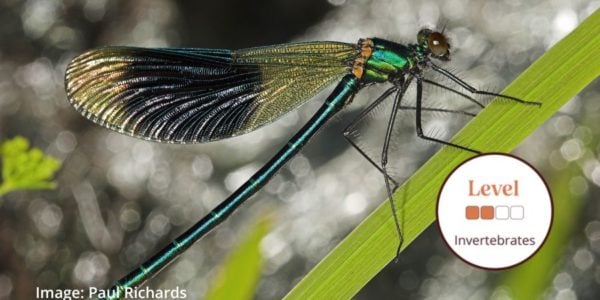
Sat 06, July 2024 10:00 - 17:00
Haddon Hall is unable to offer accommodation with this course, please book local accommodation if you require overnight stays and ensure you take out the appropriate insurance.
No current dates for this course? Click here to view all the upcoming Natural History courses.
Progress Your Learning
This is a training course from the Field Studies Council, delivered by expert tutors with an approachable learning style. After attending this course, you may like to progress your learning with further relevant courses or branch out into other areas of natural history. The Field Studies Council offers both online and in-person courses, so you can choose the learning style that suits you best.
The course gives you the opportunity to immerse yourself in a new subject and acquire novel skills. Our online portal gives you time to study at your own pace and fit the lessons around your own schedule.
If you have any questions about our courses please check our Frequently Asked Questions or email [email protected].
Group Bookings Made Easy
If you have a group of 10 or more individuals wanting to complete one of our courses, our team are available to discuss your options – from discounts to private team courses. Click here to find out more!
You can rest assured that the absolute best content from an expert in environmental education will be at your fingertips. In choosing a Field Studies Council course, you will be joining thousands of people who learn with us each year.

